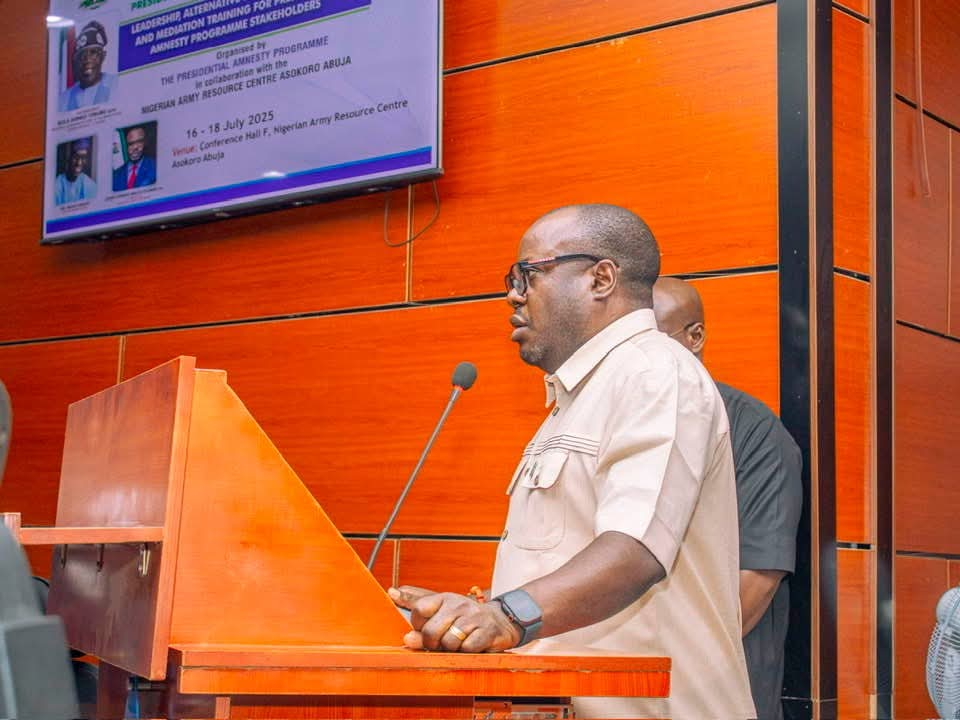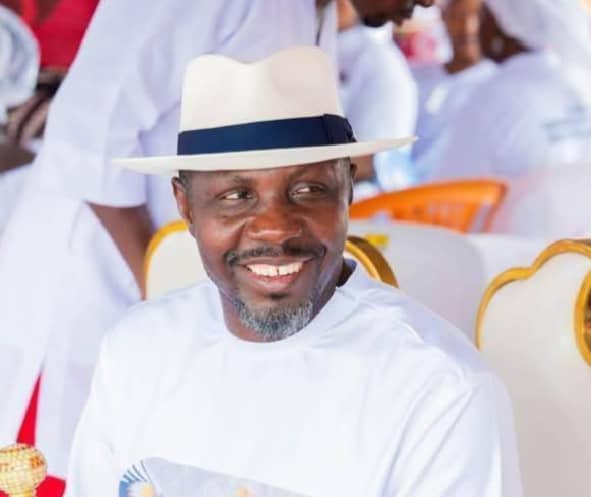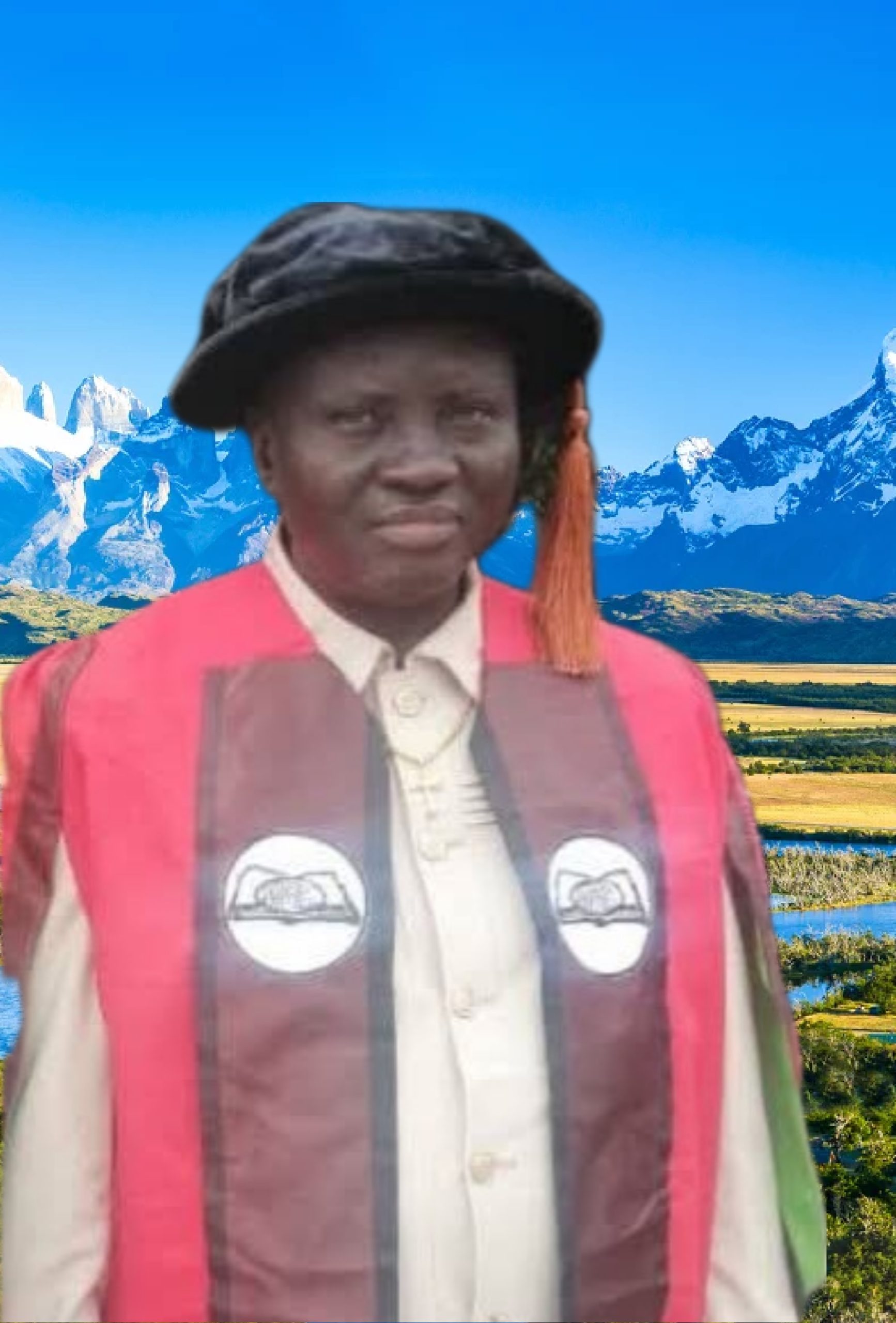Columns
Eguavoen’s Tough Call

Eguavoen’s Tough Call
by Patrick Omorodion
Albert Nelson, better known by his stage name Albert King, was an American left-handed guitarist and singer regarded as one of the greatest and most influential blues guitarists of all time. He died of heart attack in 1992.
He sang a popular song, ‘Everybody wants to go to heaven’ with lines like this, ‘Everybody wants to laugh. Ah, but nobody wants to cry. Everybody want to hear the truth but yet, everybody wants to tell a lie. Everybody wants to go to heaven. But nobody wants to die’.
This is the truth about human beings. They want better things which comes with saying it the way it is, but they are afraid to lead the way. Talk about belling the proverbial cat, it is being brave enough to do something that will be good for a group that you are part of, but is dangerous or difficult.
Everybody seems to agree that we’ve got to bell the cat, but no one wants to step forward and volunteer to lead.
For many years, Nigerian football coaches have been used and dumped by the Nigeria Football Federation, especially to fill the gap whenever the over pampered foreign coaches they hire throw their jobs back at their faces.
Or when they feel done in by them after believing that they were the Messiah they needed to take Nigeria’s football to a level that their Nigerian counterparts could ever get to.
Name them, Festus Onigbinde, late Paul Hamilton, late Shaibu Amodu, late Stephen Keshi, Augustine Eguavoen, Sunday Oliseh and Samson Siasia. All of these coaches have been used as interim coaches whenever the football federation found it difficult in getting foreign coaches to handle the Super Eagles. None of them have ever been given a permanent contract even for a short period with good conditions like their foreign counterparts..
This is because these coaches are quick at accepting anything thrown at them just to answer the name ‘Super Eagles Coach’. They never get to sit with the NFF to discuss the conditions of service.
However, when they are owed salary or dumped unceremoniously, they run to the media to cry about the injustice meted to them by the NFF.
It is however, a surprise that Eguavoen has come out to spell out the conditions under which he will accept to handle the national team on a permanent basis if approached with the offer.
No one can stop me anymore, says Humblesmith, releases ‘Sochi ‘
As the technical director of the federation, he was drafted to handle the team when the NFF’s attempt to hire Bruno Labbadia after the exit of Jose Peseiro fell flat.
Eguavoen has already led the Eagles in two AFCON qualifiers, beating Gernot Rohr’s Benin Republic in Uyo and drawing with Rwanda in Kigali.
Coming after the disastrous outing of Finidi George in two 2026 World Cup qualifiers against South Africa and Benin Republic, Nigerians who were shocked by the shambolic display of the Super Eagles are beginning to sing Eguavoen’s praises, advocating a permanent deal for him.
The NFF who are still in a quandary over how to get a foreign coach, which is their priority, maybe thinking along that line especially as they may not have the scarce foreign exchange to hire one for now, considering the approach of the 2025 AFCON Finals.
This maybe the reason why Eguavoen, known for not wanting to rock the boat, may have chosen to bell the proverbial cat for the much undermined indigenous coaches for the first time.
While speaking with Brila FM recently, he hinted that he was not ready to jump at the offer of a permanent job without conditions like a long-term contract, patience and support to succeed at the job
Hear him: “If I were to switch permanently, it’s something I’d need to sit down, reflect and think deeply about because it’s not a small job. It will be a tough one. You have to give me long-term contract with patience and clauses in that contract because winning is not guaranteed every week or day. You will give me time to tweak the team till I find what I want.”
He wants to be given a long contract like the foreign coaches get, which will allow him plan a workable strategy to succeed.
He said, “In 2006, I was there for six months, every other time it was two months, two games or three games. Clemens Westerhof was in charge between 1989 and 1994, (Gernot) Rohr was there for six years. They got some
time. I never got straight two years.”
This is a very tough call he is making to the NFF. It’s going to be a choice that may be very difficult for the Ibrahim Gusau-led Board to make, knowing their lack of confidence in indigenous coaches.
If Senegal damned foreign coaches and gave their own, Aliou Cisse the support for nine years and he succeeded before he was shoved aside recenly, then the NFF should for once give it a try with our local coaches too.
It is high time the NFF stopped pandering to criticisms from fans and the media to make decisions on local coaches. They should know that what is good for the goose should equally be good for the gander. The same support, good salary and a good contract the foreign coaches get should be given to indigenous coaches too.
Kudos to Eguavoen for finally stepping up to bell the cat with his tough call on the NFF.
N.B. Next week, I will celebrate an avid reader of this Column and Sunday Vanguard, a great Nigerian, a nonagenarian, boardroom guru and a sports man in his school days, Dr. Michael Olawale Omolayole who turns 96 that day. Congratulations in advance sir.
Columns
Chief Denis Otuaro, the Guiding Star of PAP

By: Professor Binebai
The Niger Delta has found a beacon of hope in Chief Dr. Dennis Otuaro, a leader of unimpeachable integrity, courage, and vision. As the helm of the Presidential Amnesty Programme (PAP), he has emerged as a champion of transformation, inspiring a region and a nation with his unwavering commitment to empowerment and progress.
In the realm of Nigerian leadership, there are those who leave an indelible mark on the sands of time, and Chief Dr. Dennis Otuaro is one such luminary. As the helm of the Presidential Amnesty Programme (PAP), he has etched a narrative of hope, redemption, and triumph, illuminating the path for the people of the Niger Delta. This tribute is a celebration of his extraordinary leadership, vision, and unwavering commitment to the cause of empowering the youths and transforming the region.
Chief Denis Otuaro’s stewardship of the Presidential Amnesty Programme (PAP) has indeed been a renaissance, a majestic sunrise after a long, dark night, as he infuses the initiative with the radiance of a new dawn.
Like the mythical Anansi, the wise and cunning spider of West African folklore, Otuaro’s leadership has woven an intricate web of hope and opportunity, capturing the challenges of the Niger Delta and transforming them into a rich mosaic of promise and progress. His vision, akin to that of the venerable Oracle of Delphi, has deciphered the complexities of post-conflict reconstruction, guiding the demobilised youths through the labyrinth of uncertainty, and into the bright light of empowerment and redemption.
Otuaro’s journey has been sustained by a resolute commitment to the cause, his leadership style a masterful blend of courage, wisdom, and compassion. His tenure has been marked by a symphony of progress, as the PAP, under his guidance, has orchestrated a harmonious balance of pacifism and pragmatism, transforming the region into a veritable Garden of Eden.
Like Athena, the Greek goddess of wisdom, Otuaro wields the power of transformation, his touch turning the arid landscape of despair into a lush oasis of hope and prosperity. His leadership has become a byword for sagacity, a testament to the transformative power of vision, courage, and compassion.
In the pantheon of Nigerian leaders, Otuaro’s name shall be etched alongside the greats, his legacy a shining testament to the indomitable human spirit, as he continues to weave a new narrative of hope, redemption, and triumph for the people of the Niger Delta.
The Niger Delta has found a leader of repute, a leader of courage, a leader of transformation, a leader of goodwill in the PAP. Let egocentric economic buccaneers and demonic agencies stop their campaign of calumny against this leader of glory.
To those who seek to undermine his efforts, we say: let envy and malice be silenced! Let the progress of the Niger Delta be the benchmark for greatness! Let Otuaro’s leadership be the inspiration for a new generation of leaders!
Columns
A Legendary Legacy: The Enduring Odyssey of High Chief (Dr.) Government Oweizide Ekpemupolo

By: Professor Ben Binebai
In the realm of Nigerian leadership, one name resonates with mythical significance – High Chief (Dr.) Government Oweizide Ekpemupolo, affectionately known as Tompolo. Born on 12 April 1971, in Warri, Delta State, Tompolo has etched his name in the annals of history, leaving an indelible mark on the Niger Delta region. As a former militant commander of the Movement for the Emancipation of the Niger Delta (MEND) and chief priest of the Egbesu deity, he has navigated the treacherous waters of war and peace, leveraging his remarkable journey to bring succour and development to his people.
Tompolo’s metamorphosis from a militant leader to a peace advocate is a testament to his unwavering commitment to the progress of the Niger Delta. His decision to embrace the Amnesty Programme in 2009 marked a turning point, as he laid down arms and picked up the mantle of transformation. Today, he is revered as a hero, celebrated for taming the turbulent waters of the Creek boys and settling major political crises in the region. By putting the Ijaw image on the Nigerian map, Tompolo has redefined the narrative, showcasing the rich cultural heritage and resilience of the Ijaw people to the world.
A nationalist and statesman emerging from the boiling pot of agitation in the Niger Delta, Tompolo has consistently demonstrated his commitment to the development and progress of his people. His agency operates in close collaboration with the government, working tirelessly to implement projects and initiatives that benefit the Niger Delta region. His leadership style is characterised by quiet strength, strategic thinking, and an unwavering commitment to the progress of his people. His efforts have earned him recognition and accolades from various quarters, solidifying his position as a dependable pillar of the Ijaw nation.
As the last voice of the Ijaw nation, Tompolo’s legacy continues to inspire hope and progress for generations to come. With institutions established for national economic stability and prosperity, his impact will be felt for years to come. Tompolo’s story serves as a beacon of hope and resilience, inspiring his people to strive for greatness.
God bless this emergent leader of the Ijaw nation.
Columns
YOUNA: WARRI CRIES FOR PEACE AND JUJUSTICE

By: Ben Binebai
In the Niger Delta region of Nigeria, a city cries out for peace, justice, and unity. Warri, a land of rich cultural heritage and economic significance, has been plagued by recurring crises, sparked by provocative actions and claims of ownership by the Itsekiri group. The cry of Warri is a call to action, a reminder that our diversity is a strength, not a weakness, and that our common humanity is worth fighting for.
The Ijaw, Urhobo, and Itsekiri communities have coexisted in Warri for centuries, sharing a rich cultural heritage and a deep connection to the land. Occasionally uniting but deeply disunited because power and hegemony have often overshadowed their shared humanity, the people of Warri yearn for a future where their differences are celebrated, and their commonalities are the foundation of their unity. Warri’s significance extends beyond its current boundaries, as it has been a hub of economic and cultural activity for centuries. Before 1952, Warri was a thriving commercial centre, with the Ijaw, Urhobo, and Itsekiri communities contributing to its growth and development.
The city’s strategic location and access to the Niger Delta’s vast resources made it an attractive location for trade and commerce. Understanding Warri’s rich history and cultural heritage is essential to finding a lasting solution to the crisis.
It is time for truth to prevail to offer a lasting solution to the Warri crisis. The canoe of godfatherism should be withdrawn for the rule of law and for peace and progress to triumph.
The lie of exclusive ownership of Warri resists termination due to several factors, including:
Outdated court judgments: The Itsekiri establishment continues to rely on outdated court judgments, such as the 1925 judgment, to support their claim of ownership, despite subsequent judgments repudiating its validity.
Lack of political will: Successive governments have failed to address the problem and take the right and just decision, allowing the crisis to persist.
Absolutist claims: The Itsekiri claim is absolutist, while the Urhobo and Ijaw claims are limited, recognising ownership of portions of Warri by other communities.
Historical narratives can be deeply ingrained*: People’s understanding of their history and identity can be shaped by long-standing narratives, making it hard to change their perspectives.
Emotions and biases can override facts: When emotions and biases are strongly tied to a particular narrative, people may resist changing their views, even in the face of contradictory evidence.
Power dynamics can influence narrative control: Those in positions of power may use their influence to shape and maintain certain narratives, making it harder to correct lies and misconceptions.
Moreover, leadership plays a crucial role in shaping the future of Warri. As the saying goes, “When leaders refuse to embrace sacrifice, society dies.” Leaders who prioritise the greater good, make tough decisions, and invest in the future can help build a more harmonious and prosperous society. It is time for the leaders of Warri to put the needs of their people first and work towards a brighter future.
The cry of Warri is a call to action, a reminder that our diversity is a strength, not a weakness. Let us work towards a brighter, more harmonious future, where the beauty of our differences is celebrated, and our common humanity is cherished. May the cry of Warri be heard, and may we rise to the challenge of building a better tomorrow for all its people.
